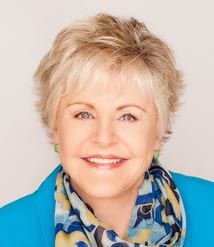Surviving a Career Change After 50

2020 has certainly been a year of extraordinary change and challenge for all of us, but if you’re over 50 and facing a career change due to COVID-19, you are probably in a state of shock right now.
Will Ageism Affect Your Career Change?
A recent AARP report (Unemployments Toll on Older Workers) stated that “older workers were 17 percent more likely to become unemployed than younger peers”.
Older workers also stay unemployed longer than their younger contemporaries.
Ageism is an unfortunate reality in this country. Rapid changes in hiring and business practices make it even worse.
So, what’s driving these changes?

Factors Affecting a Career Change
There are many factors affecting career change, but without a doubt, one of the biggest is the explosive growth of the Internet.
Constantly expanding social media platforms and technological advancements have exploded since the mid-2000s. Each has had its own impact on the way businesses recruit, communicate, and train their employees.
Few would argue that these advancements have also played a pivotal and far-reaching role in changing the way we view our overall social roles and culture.
Baby Boomers have both suffered and profited from these cultural changes.
If you are a Baby Boomer, you’ll need to be ready to adapt to an ever-changing hiring landscape. Because of that, you’ll need a different mindset AND skillset to move their careers forward.
Don’t make the mistake I did in 2008 by using traditional job search methods as I wasted a lot of time and energy in the process.
I finally had to shift my focus, be flexible to new ideas, and willing to take a walk on the wild side!
Well, here we are again! Is the wild side calling you?
What do you do if you are in your 40’s, 50’s or beyond and find yourself in a similar situation of involuntary “Career Reinvention”?

Steps You Can Take to Manage Your Career Change
Being proactive is, of course, key. But, first, right out of the starting gate, you might want to consider one, or all, of the following:
1) Make a fresh assessment of present and future priorities, not just your skills.
During an involuntary job change, the first step they usually take is to brush off their job history and skill set list, update their resume and try to find a job similar to what they just left behind.
But, isn’t that essentially like saying you expect your future to look just like your past?
2020 has certainly taught us to expect the unexpected. So, maybe it’s time to explore the potential beyond your “New Normal”?
Why not take some time to do a deep and honest dive into re-evaluating what you REALLY want in life both now and into the future? What if this job change is your key to a new opportunity you didn’t even know existed?
Maybe what’s important to you now is completely different than where you were when you made your last job search in personal growth, interests and skillsets? Were you even happy in that career?
2) Ditch outdated job search methods
Newsflash! If it’s been a long time since you’ve been out looking in the job market, you’re going to notice some big changes.
The fact is that companies now use automated online job posting sites, their internal company job board, and/or their social media sites to post new job openings. Larger companies often received thousands of applications for a single position.
To make matters worse, many HR departments are using software to identify, and purge applications, based on a set of keywords and qualification criteria BEFORE a human even sets eyes on it!
Statistics show there is an increase in the trend to fill positions from internal referrals. A candidate has a 40% higher chance of getting a position when they are referred by someone known to the hiring team.
This is why social media sites like Linkedin, Facebook, and Instagram are the newest networking essential to career development.
So, determine your Plan B and start reaching out to the sources and groups on those sites where you can find like-minded professionals to connect and network with.

3. Consider starting your own business or consulting service.
One of the biggest shifts in the way businesses hire now is to outsource work to independent contractors. If you’ve got significant expertise in an area of service and open to owning your own business, companies are hiring more and more of this type of worker to reduce business costs and streamline human resource management.
Or take your expertise and create a service-based business like Senior Downsizing, where you help seniors and their families navigate a downsizing move to a smaller home.
Owning your own business has its positives and negatives.
It can certainly offer you more freedom and flexibility in a schedule than a traditional job and there is a myriad of businesses, like senior downsizing, that is a perfect fit for older professionals.
Owning your own business enables you to work with multiple clients and can give you greater growth opportunities and income potential.
The truth is, the odds of finding a business that can be a good fit for your expertise, as well as one that you truly love, are higher in your favor now than ever before, even in pandemic conditions.

You have options!
So, what does all this essentially come down to if you are a person experiencing a mid-life career change?
The good news is that you have more options now than were available just two decades ago. But, it might mean you’re going to need to get out of your comfort zone, learn some new skills and welcome some new paradigms.
But, is that a bad thing? Having personally gone through the “Baby Boomer Re-Invention” Phase twice in the last 12 years, I can tell you it’s a positive experience and worth every single moment of self-discovery.
All that is asked of you is to stay open in mind and heart and keep moving toward your goals one step, and one day, at a time.

Deborah
